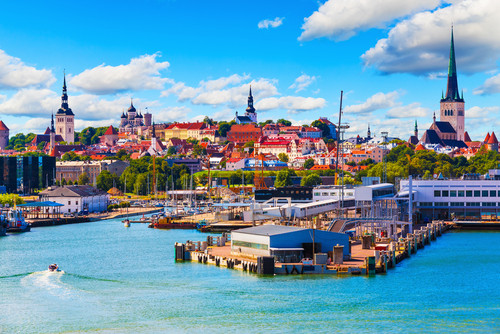Port of Tallinn has announced its plans to design along with partners a green infrastructure in the Estonian Baltic Sea and to convert ferries to hydrogen fuel in order to boost the county’s climate neutrality and increase its competitiveness.
Currently, there is no hydrogen terminal in the area of the Gulf of Finland, and Paldiski South Harbour fits well for the export and import of hydrogen in terms of location as it is ice-free. Muuga Harbour is also considered a favourable location due to the fact that Rail Baltic will start there and will open up additional business opportunities.
The hydrogen storage facility of 25,000 m3 is planned in cooperation with the holding company Alexela and will enable the export and import of hydrogen in the Baltic Sea region, allowing the transition of the Estonian economy to clean energy sources, according to the Port of Tallinn.
Margus Vihman, member of the management board and chief commercial officer of Port of Tallinn stated that “The wind farm service campus could be built in these ports in the future,” while also “the plan of building a hydrogen terminal could be attractive for the industries that do not produce energy themselves, but would like to take part in the green revolution and rebuild their production.”
Furthermore, Margus noted that “The European Green Deal, ambitious climate goals and hydrogen strategy create a very good opportunity to build climate-friendly green infrastructure in Estonia with the support of the European Union”, which would contribute to full transformation of the transport sector while giving a further boost to the renewable energy sector.
According to the Estonian port, there will be a need for bunkering hydrogen or other green fuels in the east-west corridor of the Baltic Sea in the future, suitable for both Muuga and Paldiski South Harbour.
Additionally, Port of Tallinn in cooperation with the Dutch Embassy and the company & Flux have been conducting a study on the possibilities of using green hydrogen in ports, which revealed that Estonia could be a suitable location as a hub for hydrogen infrastructure in the Baltic Sea.
Last but not least, the Estonian port has also entered into an agreement with the Port of Hamburg in order to collaborate on the development of the hydrogen infrastructure value chain.







